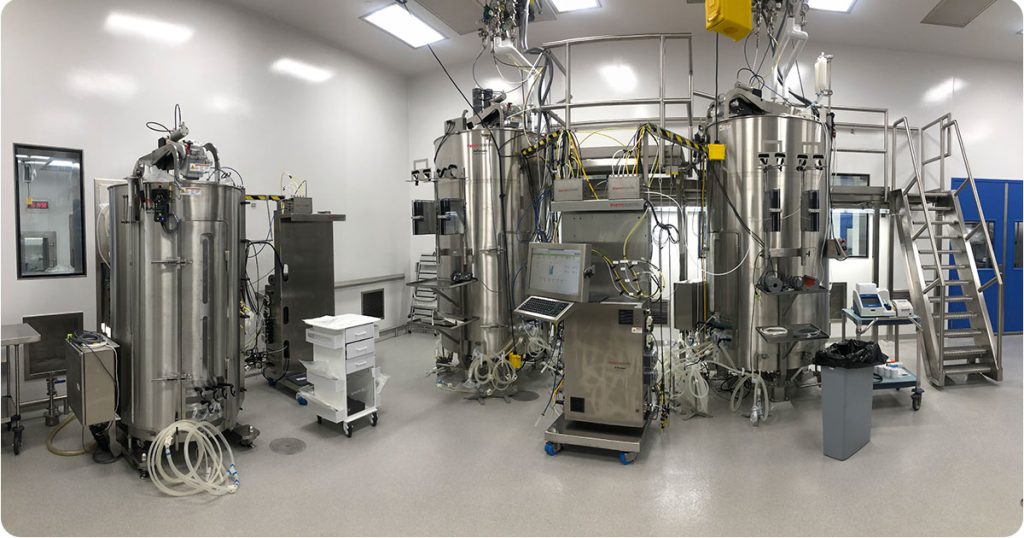31 May Wisconsin’s biopharmaceutical manufacturing sector is poised for growth

At Catalent’s Madison location, the company manufactures biologically active pharmaceutical ingredients in its small- and large-scale bioreactors, serving pharmaceutical companies of all sizes.
A biohealth hidden gem

Aaron Olver, Managing Director, University Research Park
For decades, Wisconsin has quietly been an expanding force within the pharmaceutical industry. Now, with the recent announcement that Eli Lilly and Co. will take over a new pharma manufacturing plant, Wisconsin’s star may shine even more brightly.
For decades, Wisconsin companies have been manufacturing the active pharmaceutical ingredients (APIs) that power many kinds of medications sold and used around the world. The trend has escalated in recent years as science and technology have advanced new ways to treat illnesses.
“The biopharmaceutical sector is a critical piece of Wisconsin’s biohealth industry and has contributed to the overall industry’s impressive 11% growth from 2018 to 2021,” says Michael Harrison, senior director of strategic initiatives and community engagement for BioForward Wisconsin, the organization that represents and advocates for the state’s biohealth community.
Biopharma provided more than 17,500 jobs in Wisconsin in 2021, and the specialized subsector of biologics manufacturing alone has added nearly 600 jobs since 2015, an increase of 29%, according to BioForward.
Aaron Olver, managing director of University Research Park (URP) in Madison, says biopharma encompasses more than just drug development: “Quite a few of our companies have some sort of biomanufacturing component, even if people don’t think of them that way.”
For example, Exact Sciences makes cancer diagnostics, with its Cologuard kit to detect colon cancer and other products in the works. Illumina makes enzymes that support its genomic sequencing equipment, while Promega makes specialty reagents and kits for life science research. Meanwhile, Fujifilm Cellular Dynamics, founded by pioneering UW researcher James Thomson in 2007, manufactures induced pluripotent stem cells—cell lines reprogrammed from adult tissues—used for research and for treating a wide variety of diseases.
Other companies make pharmaceutical ingredients and are working on novel products. Arrowhead Pharmaceuticals is developing drugs of its own using RNAi technology that suppresses genes linked to various illnesses. The company’s goal, proclaimed on its website, is to have as many as 20 drugs in clinical trials or on the market in 2025. Invenra is partnering with a host of companies to develop cancer-fighting drugs based on Invenra’s platform that allows antibodies to attach to two targets that alert the immune system to attack cancer cells.



